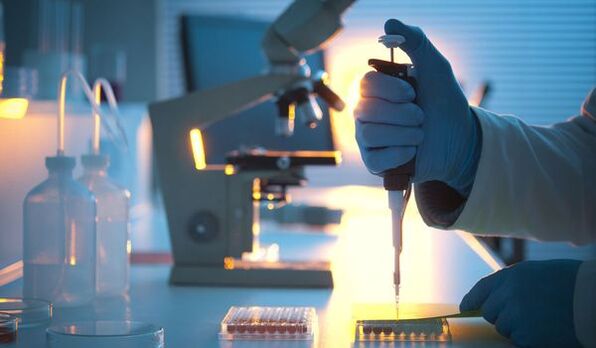Worm infestation - infection of the human body with parasitic worms - worms (helminths). Symptoms of helminthic infestation are determined by the route of infection, the number of parasites admitted, the degree of their adaptation in the human body, and other characteristics.
In adults, the first signs of the disease may appear both 2-3 days after infection and a year and a half later, but the incubation period is usually 2-3 weeks.
Helminths do not tend to multiply in the human body (except for pinworms and some other worms).
Ways of infection:
- contact with households;
- alimentary;
- transferable;
- percutaneous.
The source of infection is a sick person or carrier.
Classification of helminths
In adults, more than two hundred species of helminths, mainly structural worms, have been reported to be parasitic:
- Roundworms are nematodes that cause diseases such as ascariasis, enterobiosis, trichuriosis, trichinosis, dracunculosis, filariasis, toxocariasis.
- Flatworms are divided into:
- a class of tapeworms that cause teniarinhoz, teniasis, sisticercosis, diphyllobothriasis, hymenolepiasis, exinococcusosis;
- Class of influenza that causes diseases such as schistosomiasis, opisthorchiasis, clonorchiasis, fascioliasis, dichroseliasis.
Depending on the characteristics of the life cycle and transmission factors, three main types of helminths are distinguished: geohelminths, biohelminths, contact helminths.
Effects of parasites on the human body
The vast majority of worms live in the intestines of adults, but some species of parasitic worms in the larval stage grow in the tissues of other organs (liver, brain, heart, lungs, eyes, etc. ). In the process of the vital activity of helminths, toxic substances are formed that penetrate the blood and are transported to various organs. In addition, helminths in the human intestine absorb substances necessary for life (amino acids, fatty acids, glucose, enzymes, etc. ), which lead to malfunctions in the body's physiological systems.
Helminthic infestations during pregnancy are doubly dangerous: the harmful effects are reflected not only in the condition of the mother, but also in the maturation of the embryo.
Worm infestation can complicate the development of pregnancy. Infection in a woman's body reduces the absorption of nutrients, which is very undesirable during gestation.

In addition, helminths can cause severe toxicosis during pregnancy. Pinworms can penetrate a woman's genitals. This causes severe itching and consequent constant anxiety and sleep disturbances.
There are helminths that can damage the intestinal wall. As a result, small but long-term blood loss is possible. This is fraught with the development of iron deficiency anemia in pregnant women.
Helminths can cross the placental barrier and parasitize the fetus. In addition, it can enter the brain and increase the size of the head, which complicates the birth process.
It is also dangerous for them to be in the lungs - the child will later develop their chronic inflammation.
Clinic
Distinguish the acute phase of helminthic invasion, which is characterized by a more pronounced clinical course and is chronic, which can last for several years and manifests itself as deleted symptoms.
The most common symptoms of helminthic infestation are:
- Appearance of digestive system disorders, ie:
- constipation (due to obstruction of the intestinal lumen, bile ducts with worms);
- loose stools (under the influence of substances created by helminths);
- excessive gas formation (due to indigestion).
- Joint and muscle pain - seen when parasites penetrate joint fluid and muscles.
- Skin symptoms (rash, eczema, itching, acne) caused by exposure to helminth toxins.
- Disorders of the nervous system are expressed:
- anxiety;
- irritation;
- longing;
- sleep disorders, etc.
- Weight loss due to metabolic disorders.
- Catarrhal symptoms of the respiratory tract caused by helminths (runny nose, cough).
Indirect signs of helminthic invasion:
- enlarged lymph nodes;
- increased body temperature;
- fatigue, asthenia;
- nausea (may occur during pregnancy as a manifestation of toxicosis);
- headaches;
- anemia (due to blood loss);
- itching in the perineum.
Diagnostics
In adults, a stool test or ablation of the folds around the anus is usually performed to detect helminthic infestations. Worm eggs are examined microscopically and their appearance is determined.
However, this analysis does not always help to identify helminths. The most specific for helminthic infestation is a blood test for antibodies against various types of worms. A general blood test shows an increase in eosinophils and leukocytes when the body is infected with helminths.

Fecal analysis alone may not be sufficient to identify worms during pregnancy. An ultrasound, blood test and amniotic fluid analysis are needed for a more reliable diagnosis.
Therapy
When signs of helminthic infestation are detected and confirmed by blood and stool tests, treatment is based on the type of parasite. To do this, the doctor prescribes special anthelmintic drugs. More often, these drugs do not enter the bloodstream, but only in the intestines. Therefore, the probability of toxic effects on the body is minimal.
In some cases, a single use of the drug is enough to get rid of the worms, in others it requires a longer treatment, established by a specialist according to an individual scheme.
This is a condition that the disease does not take a chronic course. The main task of the re-treatment course is to destroy the parasites that have entered the human body in the form of eggs and have not yet completed their developmental life cycle. After a while, they will become adults and will be destroyed under the influence of drugs.
Usually, the whole family should be treated under the supervision of blood and stool tests to get a good result.
Pathogenetic therapy includes anti-allergic drugs, drugs to normalize the intestinal flora.
At the same time, the accompanying diseases are treated, often developing as a complication of helminthiasis (anemia, hypovitaminosis, malnutrition).
In addition to the anthelmintic effect of the drug during pregnancy, the possible effect on the fetus is also taken into account.
As a rule, in the first trimester of pregnancy, when the lining of the main organs and systems of the embryo is in the formative stage, it is better to avoid such treatment. During this period, any medication can do more harm to the fetus than the risk of exposure to worms.

At this stage, you can try to get rid of parasites with the help of non-drugs.
There are many prescriptions that can complete the basic treatment and sometimes completely replace the medication. The most proven remedies for helminths are:
- pumpkin seeds;
- onion;
- garlic;
- pomegranate juice;
- tansy and wormwood infusions.
During the second and third trimesters, the likelihood of adverse drug reactions to the fetus and its carrier decreases.
At the end of the course of therapy it is necessary to re-analyze for worms - scratching. This is done to ensure the correctness of the prescribed treatment and the destruction of all worms.
Remember that therapy should be carried out under the supervision of a specialist. Re-analysis is performed no later than 2 weeks after the end of the course of treatment. A course of therapy completed with 3 negative tests with an interval of 2 weeks can be considered.
Prevention
Measures to prevent helminthiasis:
- to observe personal hygiene measures (washing hands before eating, personal use
- personal hygiene products, personal underwear and bedding);
- compulsory washing of vegetables, fruits and greens with water before eating;
- complete heat treatment of meat, fish;
- control of blood-sucking insects;
- regular wet cleaning at home;
- full care of pets;
- regular change of underwear and bedding, their mandatory ironing;
- Exclude swimming in water bodies where there is a high probability of helminth infection.
When planning a pregnancy, you should be tested for helminths. If they are, it is necessary to undergo a course of treatment before pregnancy to avoid harm to the child's body.
Timely and complete treatment of the acute form of helminthiasis is the prevention of the chronic course of the disease.






































